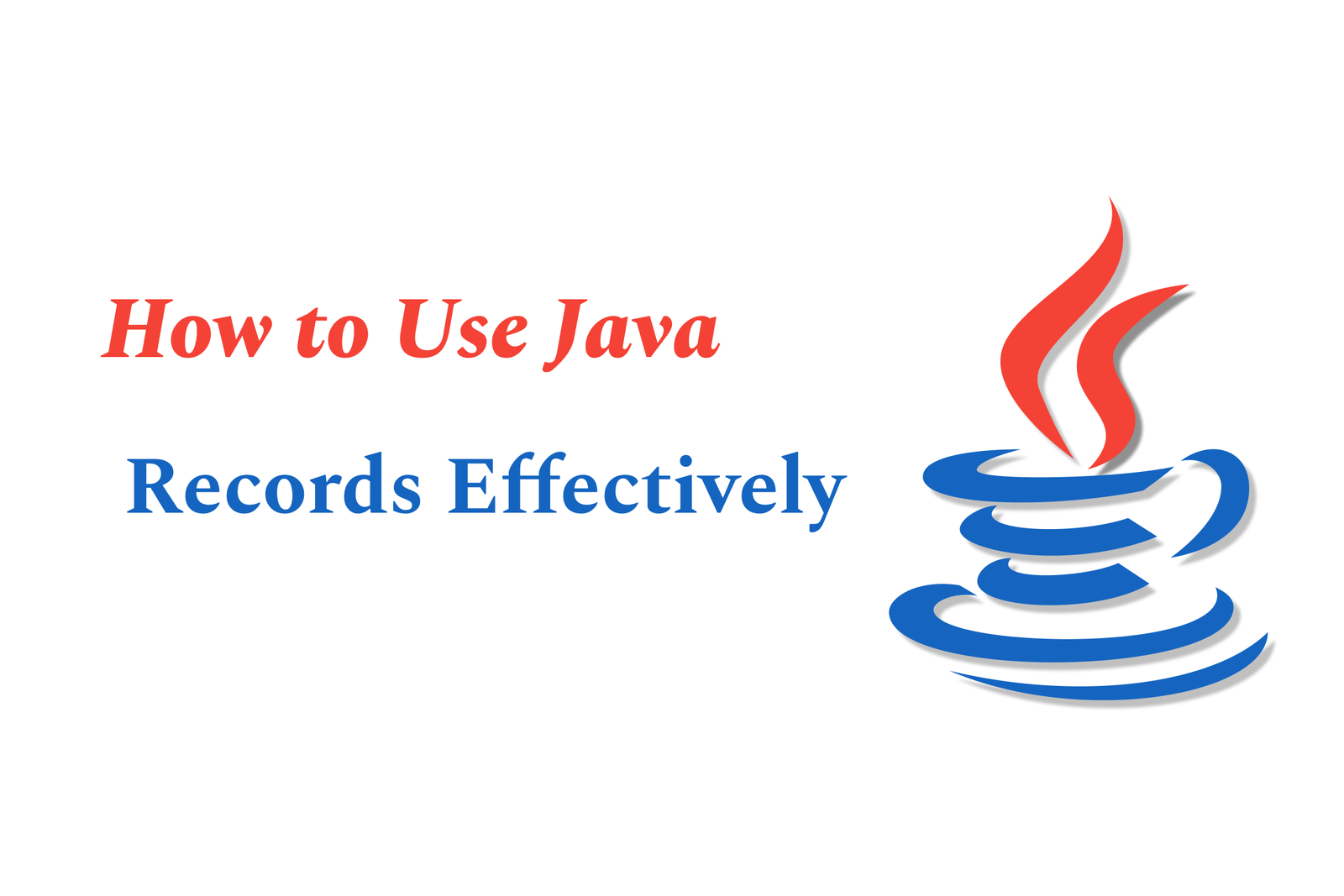How to use java records effectively
Java Records provide a concise, immutable data carrier syntax that reduces boilerplate by auto-generating constructors, getters, equals(), hashCode(), and toString(). Use them for simple value objects to write cleaner, more maintainable, and thread-safe Java code effectively.
How to Use Java Records Effectively
1 ) Introduction to Java Records
Java Records, introduced in Java 14, provide a concise syntax for creating immutable data centric classes. They reduce boilerplate by automatically generating essential methods such as constructors, equals(), hashCode(), and toString(), enabling cleaner and more maintainable code.
2 ) Benefits of Java Records
Simplicity: Records simplify data objects by removing the need for verbose coding of repetitive methods.
Immutability by Default: Records encapsulate data immutably, making objects thread safe and predictable.
Conciseness and Readability: With fewer lines of code and clear intent, records improve code expressiveness.
3 ) Challenges with Traditional Java Classes
Before Records, developers faced verbosity, needing to write boilerplate code for constructors, getters, equals(), hashCode(), and ensuring immutability manually, which complicated maintenance and readability.
4 ) How Java Records Address Challenges
Records provide a compact syntax that generates the necessary boilerplate code under the hood while maintaining immutability, thus simplifying the creation and usage of data carrier classes.
5 ) Using Java Records: Key Features
Syntax: Definition is simplified, specifying components in a header like structure.
Constructors: Records support canonical constructors, compact constructors with validation, and additional constructors if needed.
Component Access: Components are accessed via implicitly declared accessor methods.
Overriding Methods: Methods like toString(), equals(), and hashCode() can be overridden for customization.
Implementing Interfaces and Delegation: Records can implement interfaces and delegate behavior, though business logic should be minimized.
6 ) Best Practices for Using Records
Use records for simple, immutable data carriers.
Avoid embedding complex business logic within records to maintain clarity and separation of concerns.
Leverage immutability for safer multi threaded environments.
Ensure readability by keeping records concise and focused on data representation.
Avoid overcomplicating records with excessive methods or inheritance.
7 ) Comparison with Other JVM Features
Lombok: While Lombok reduces boilerplate via annotations, it adds external dependencies and lacks built in immutability guarantees.
Kotlin Data Classes: Kotlin offers more flexibility and additional features like default values but requires learning another language.
8 ) Mastering Java Records
To effectively utilize records, understand their syntax and limitations, practice creating records for suitable use cases, and follow recommended design principles to maximize benefits in simplicity, performance, and code clarity.
Conclusion
Java Records transform how developers handle data objects by offering a streamlined, immutable, and expressive way to write cleaner Java code. By adopting records thoughtfully and adhering to best practices, developers can significantly reduce boilerplate, improve maintenance, and focus on application logic rather than repetitive coding tasks.
https://justacademy.in/news-detail/apple-developer-program:-2025-changes-explained
https://justacademy.in/news-detail/ios-19-widgetkit-deep-dive-for-developers
https://justacademy.in/news-detail/react-native?s-cloud-integration-features-in-2025
https://justacademy.in/news-detail/android-new-device-form-factors-news
https://justacademy.in/news-detail/flutter-for-college-placements
Related Posts
In 2025, top Angular libraries offer modern, feature-rich components and tools for building dynamic web apps. From powerful data grids to low-code platforms like UI Bakery, these libraries enhance development speed, UI design, and scalability, making them essential for Angular developers.
Migrating from AngularJS to Angular 17 involves gradually upgrading your app by running both frameworks together using tools like ngUpgrade, rewriting components in TypeScript, and adopting Angular’s modern architecture to enhance performance, maintainability, and long-term support.
Angular state management tools help organize and handle app data efficiently, improving scalability and maintainability. Popular options include NgRx for robust, RxJS-based patterns, and newer Signal Store solutions that offer simpler, reactive approaches integrated tightly with Angular’s latest features.
RxJS in Angular empowers developers to manage asynchronous data streams with powerful operators like `forkJoin`, `combineLatest`, and `zip`. Mastering these key operators in 2025 is essential for building efficient, reactive applications that handle complex event sequences seamlessly.
Angular performance optimization in 2025 focuses on improving app speed and responsiveness by using techniques like OnPush change detection, lazy loading, efficient data caching, and AOT compilation. These practices reduce load times, enhance user experience, and ensure scalable, fast Angular applications.
In 2025, Angular remains preferred for large-scale, enterprise apps with its robust, all-in-one framework, while Vue attracts developers seeking simplicity and fast development for smaller projects. Both frameworks excel, with choice driven by project needs and team expertise.
Angular Signals are a new reactive primitive in Angular 16 that enable fine-grained, efficient change detection by automatically tracking dependencies and updating only affected parts of the UI. They simplify state management and boost app performance, revolutionizing Angular's reactivity model.
Angular interview questions to prepare in 2025 focus on core concepts like components, directives, data binding, routing, and dependency injection, along with TypeScript mastery and latest Angular features to ensure strong practical knowledge for building scalable, efficient web applications.
AngularJS reached its official end of support in January 2022, meaning no further updates or security patches. To ensure app security and performance, developers should consider migrating to modern Angular versions or seek third-party long-term support options if immediate migration isn’t possible.
The Angular Roadmap 2025 highlights upcoming features focused on improving developer experience and performance, including zoneless Angular, Signals integration, enhanced Forms, async data handling, improved HMR, and expanded Angular Material/CDK enhancements, driving modern, efficient web app development.










